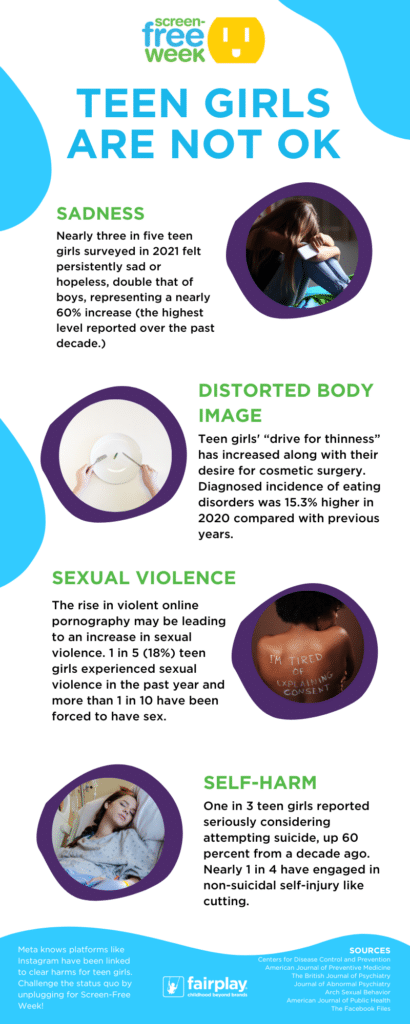
NEW! Books to Inspire Healthy Screen Use
We love celebrating during the same week as Children’s Book Week because one of our favorite Screen-Free Week activities is reading!
Each year, we pair up with the Children’s Book Council to curate a list of books that inspire kids and teens to unplug and have healthy relationships with technology! This year, we added six awesome new books to our list! We love so much about them, but here are the highlights, below:

Book
by David W. Miles, illus. by Natalie Hoopes (Familius)
What we love: Simple words and soft illustrations celebrate the idea that books, with no off switch and no need to charge, hold amazing worlds! (Ages 4-8)
 Climb On!
Climb On!
by Baptiste Paul, illus. by Jacqueline Alcántara (NorthSouth Books)
What we love: This multilingual (English and Creole) book tells the story of a child who pulls her dad away from the TV to go for a hike. The two bond as they encounter little adventures on the way to the top! (Ages 4-8)
 Peacock and Sketch
Peacock and Sketch
by Allan Peterkin, MD, illus. by Sandhya Prabhat (APA Books for Children and Teens)
What we love: Kid-friendly commentary on influencers and fast fame! We love the illustrations, the quirky Peacock character, and the message of the importance of real friendship. (Ages 4-8)
 Connor Crowe Can’t Let Go
Connor Crowe Can’t Let Go
by Howard Pearlstein, illus. by Stefani Buijsman (Clavis)
What we love: It’s hard to put down the screen; this book adds humor to the problem when the screen literally sticks to little Connor! (Ages 5-9)
 Treasure Hunt
Treasure Hunt
by Stephanie Wildman, illus. by Estefania Razo (Lawley Publishing)
What we love: A big brother leads younger siblings away from video games and toward a fun treasure hunt! We love to see siblings guiding siblings in healthy screen habits. (Ages 5-12)
 Timmy’s Monster Diary: Screen Time Stress (But I Tame It, Big Time)
Timmy’s Monster Diary: Screen Time Stress (But I Tame It, Big Time)
by Dr. Raun Melmed, illus. Jeff Harvey (Familius)
What we love: This book was written by an ADHD expert for children who need support with device use. We love that it offers concrete tactics for managing screen time, a suggestion made by a peer to Timmy the monster who finds success and a happy balance in the end. (Ages 7-11)
The list also features past winners, which include books for readers ages 0-18! Get the full list here.
What we love about these books is they serve as great conversation starters. We look for books that don’t shame kids about their screen use, but instead are empathetic to how hard it is to put down a device while also providing inspiration to unplug!
We can’t wait to celebrate with you during Children’s Book Week and Screen-Free Week, from May 1-7, 2023! Happy reading!






 Screen-Free Week gives us the extra push we need to reset our habits as we move into the warmer months. We are lucky in our community to have people who put together a lot of fun resources and activities for the week. Some they plan themselves and others they just help spread the word about.
Screen-Free Week gives us the extra push we need to reset our habits as we move into the warmer months. We are lucky in our community to have people who put together a lot of fun resources and activities for the week. Some they plan themselves and others they just help spread the word about.
